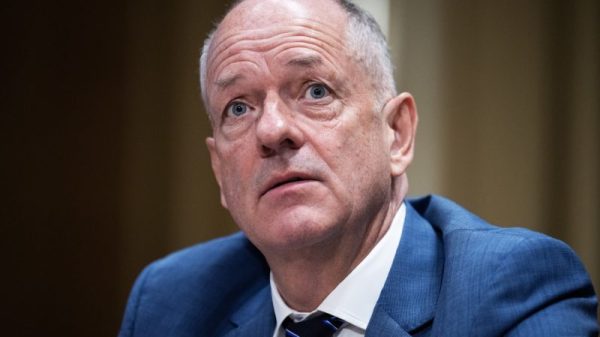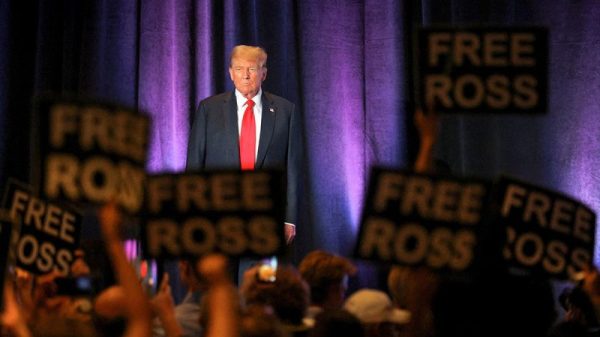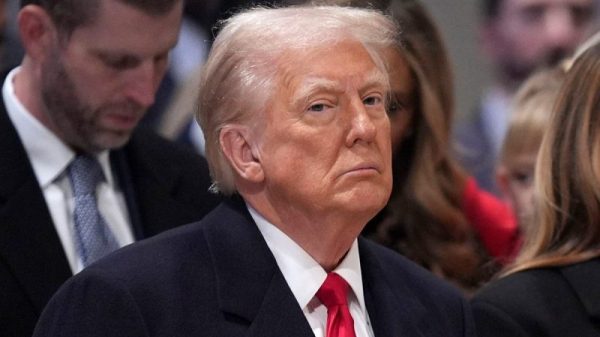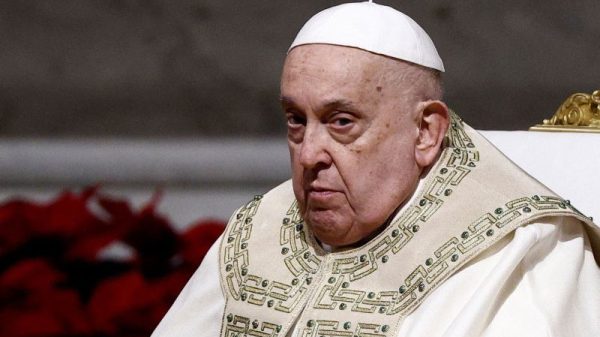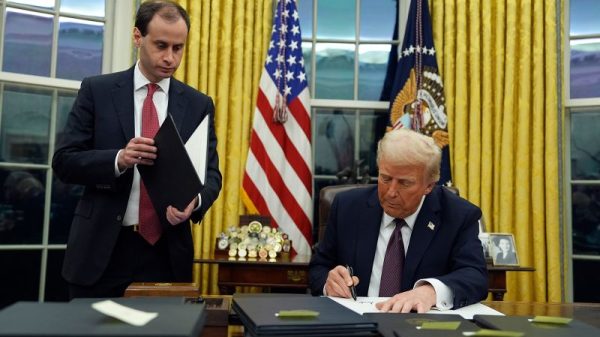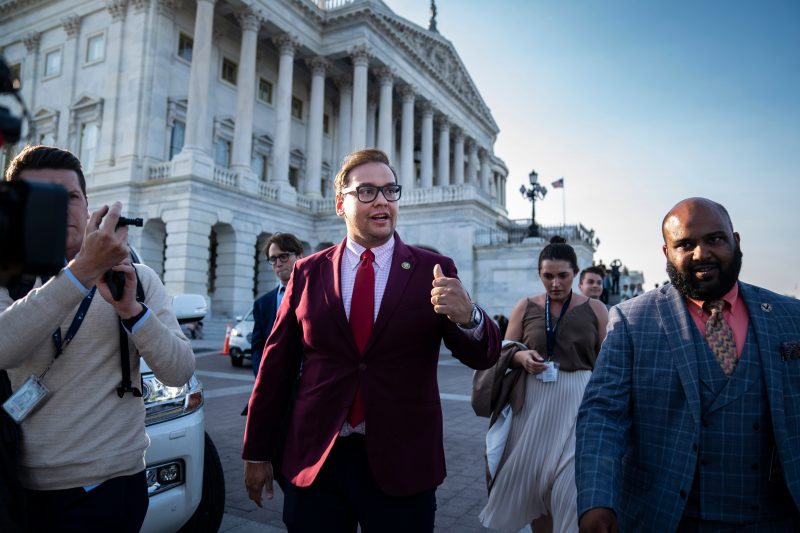A superseding indictment made public Tuesday charges Rep. George Santos with stealing the identities of family members and using donors’ credit cards to spend thousands of dollars, intensifying the legal peril facing the freshman congressman five months after he was charged with a host of other financial crimes.
Santos, 35, faces 10 additional charges, according to the indictment: one count of conspiracy to commit offenses against the United States, two counts of wire fraud, two counts of making materially false statements to the Federal Election Commission, two counts of falsifying records submitted to obstruct the FEC, two counts of aggravated identity theft, and one count of access device fraud.
The new charges were filed just days after Nancy Marks, the treasurer for the Santos campaign, pleaded guilty to fraud conspiracy and implicated Santos in a scheme to embellish his campaign finance reports with a fake loan and fake donors.
Santos, who is expected to appear in federal court on the additional charges Oct. 27, told reporters at the U.S. Capitol on Tuesday evening that he does not intend to resign his seat in Congress. He declined to comment further.
In May, the New York Republican was charged with 13 counts related to allegedly defrauding his donors, using their money for his personal benefit and wrongfully claiming unemployment benefits. Those charges were seven counts of wire fraud, three counts of money laundering, one count of theft of public funds, and two counts of making materially false statements to the U.S. House of Representatives. He pleaded not guilty, and called the investigation a “witch hunt” at the time.
“Santos falsely inflated the campaign’s reported receipts with non-existent loans and contributions that were either fabricated or stolen,” U.S. Attorney Breon Peace said in a statement Tuesday. “This office will relentlessly pursue criminal charges against anyone who uses the electoral process as an opportunity to defraud the public and our government institutions.”
Tuesday’s indictment accuses Santos of running two fraudulent schemes during the 2022 election cycle, in addition to the other shams alleged in May.
Between December 2021 and August 2022, he allegedly stole the personal identity and financial information of some of his campaign donors, and then charged the donors’ credit cards “repeatedly,” racking up thousands in unauthorized charges.
Santos charged at least $44,800 to one unknowing donor’s credit card, the indictment states.
The donor in 2021 had texted Santos to make a campaign contribution and shared billing information for two credits card, according to the indictment. Santos allegedly charged those credit cards multiple times over the course of months — exceeding campaign contribution limits — to aid his campaign and affiliated political committees, without the donor’s knowledge.
One of these charges was for $12,000, which was transferred to Santos’s personal bank account, the indictment says. Santos allegedly circumvented campaign contribution limits by falsely stating that various people had made the donations, including one of his relatives.
The indictment also alleges that Santos conspired to dupe the FEC, the Republican Party and the public with inflated campaign finance reports — a charge to which Marks, his campaign treasurer, pleaded guilty last week.
Santos and Marks are accused of falsely reporting that at least 10 family members had made significant contributions to the campaign, and that Santos had lent thousands of his own dollars to the campaign. Santos’s efforts were aimed at hitting the fundraising thresholds needed to qualify for backing from a national Republican Party committee, the indictment states. Santos had lost an earlier race for Congress and at the time was struggling to find financial support for a second run.
News organizations have previously revealed that as a candidate, Santos made up stories about where he went to college and where he worked. Santos also lied about his heritage, saying he was Jewish when he wasn’t. Santos has acknowledged embellishing his résumé but has accused people of overreacting.
Isaac Stanley-Becker and Theodoric Meyer contributed to this report.










